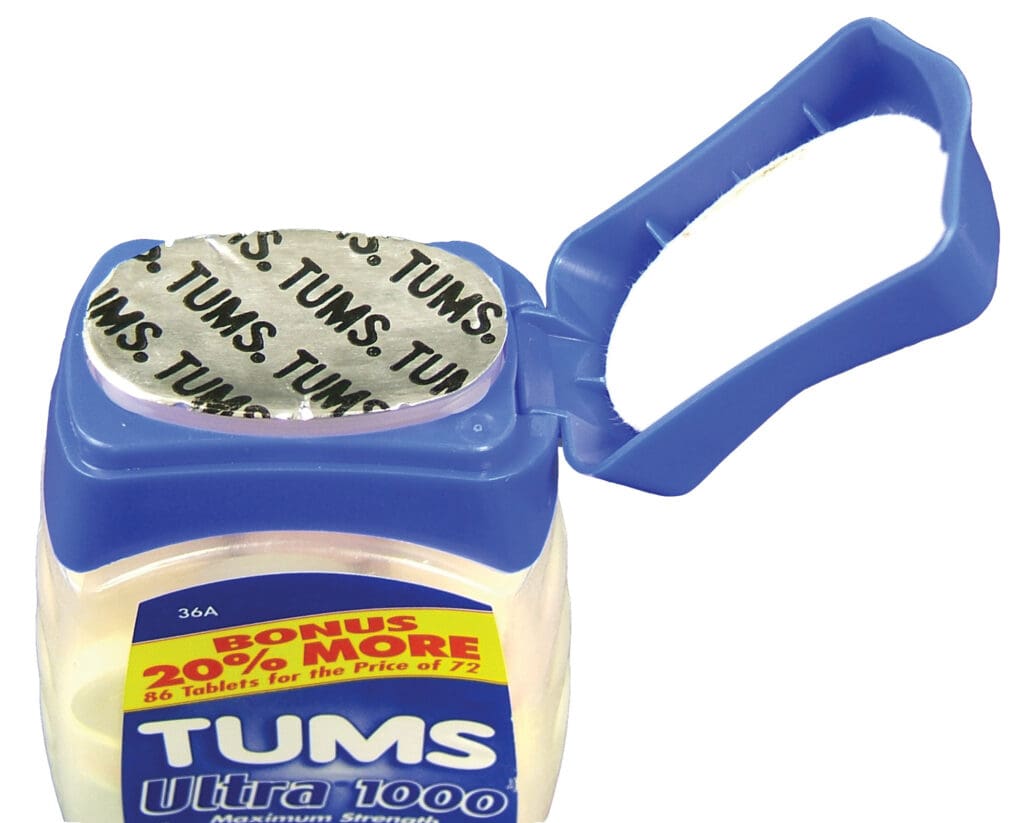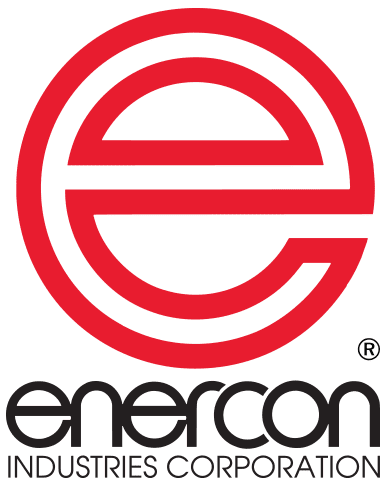Switch from conduction to induction sealing accelerates line efficiencies
Less downtime, less scrap, less conveyor, and higher speeds all translate into higher efficiencies for SmithKline Beecham Consumer Healthcare.
The Pittsburgh-based manufacturer of Tums®, Tums E•X® and Tums Ultra® Antacid/Calcium supplements, recently completed a packaging makeover on its popular products. A new induction sealer from Enercon figured prominently in the success of the project.
When SB decided it was time to redesign their TUMS package they also decided it was time to replace the large conduction sealing machines that were cumbersome and difficult to service. Jim Pitassi, packaging engineer with SB says, “The conduction units took up a lot of space, and they were hard to service. The maintenance guys had to crawl around them to make necessary changes.”
In his quest for an induction sealing supplier, Pitassi decided to add Enercon to the team developing the new Tums package. “I liked Enercon’s strong, in-house research and development team, unlike R&D consultants that I found with some of the competition. Enercon also provided the commitment to work with us through and beyond completion of the project. Also, the induction sealer is a solid, compact unit.”
The design team developed an injection blow-molded polypropylene bottle that maintained the product’s familiar silhouette. The injection-molded, high-density polyethylene cap was contoured to match the shape of the bottle, snapping on and twisting off. Once the basic cap and bottle design were decided upon, the team focused on sealing the package.
Sealing challenges
The design team developed an oval- shaped neck to top the rectangular bottle. The look mimics the rectangular shape of the traditional Tums bottle.
Induction sealing is traditionally used to seal containers with round openings. The “eddy currents” associated with induction sealing tend to travel in a circular motion making it difficult if not impossible to seal other shapes. Enercon customized its Compak Induction Sealing System with a special sealing head that generates an induction field that seals the oval-shaped opening.
The next hurdle was designing the snap-on feature of the cap, as it was crucial that the foil membrane liner contact the bottle evenly and firmly around its perimeter to produce a reliable seal every time. Most induction sealing involves screw caps, which offer the benefit of an even amount of pressure applied to the cap at all times. “With snap-on caps,” Pitassi explains, “you have to ensure that the cap areas that receive pressure from the capper get enough pressure to hold the entire liner onto the bottle.”
According to Mickey Miramonti, supervisor of mechanical services at the St. Louis plant, the cap design employs four locking lugs on each cap that hold the liner on firmly enough to create a solid seal. “We were continually adjusting things like the mold designs, how deep the cuts were for the lugs, how much pressure to apply, and the liner and cap thickness until we arrived at a design that worked,” he says.
Pretium invested in two new cap lining machines that are currently dedicated to inserting the liner into the Tums caps. The oval liner is preprinted with the Tums logo. Pitassi calls the liner “a standard 3.3-mil foam/foil/PP liner.” Pretium also purchased an Enercon Compak- the same system used at the SB facility-to randomly test the Tums packages.
Line efficiencies improved
The efficiency of the line has increased dramatically since the closure change, according to Miramonti. “There is a lot less downtime, which saves on manpower. And we produce less scrap. The conduction sealers punched the seals on the line, leaving waste, and they didn’t always center the seal on the opening of the bottle, resulting in lost product. Dwell time for the conduction sealers was a rate-limiting factor on-line, so an additional conveyor belt was snaked to slow down the bottles for sealing.”
“With the Enercon equipment, we can fill at regular line speeds. We don’t lose filling speed, as with the other (conduction) unit.”
– Mickey Miramonti, SmithKline Beecham
Tums®, Tums E•X® and Tums Ultra® are sold through drugstores, convenience stores, etc. nationwide. Pitassi says consumer feedback on the new design has been very positive. “Overall, we’re happy with the performance of the induction-sealing equipment and the many benefits it has brought to our operation.”
TUMS Package Design Partners:
- Bottle and Cap Supplier – Pretium Packaging, Hermann, MO
- Moldmakers – Swan Industries, St. Louis, MO; R.J. Abramo Associates, Hollison, MA
- Induction Sealing Equipment – Enercon Industries, Menomonee Falls, WI


